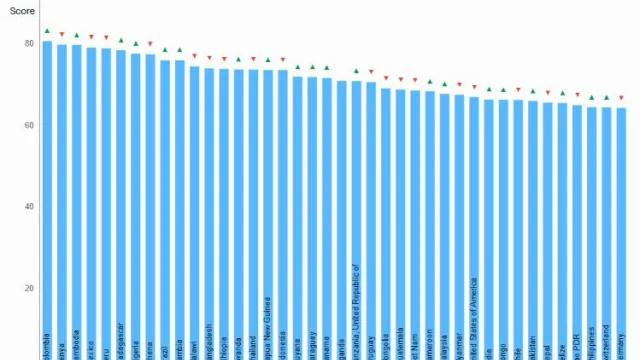Kenya rises to second spot in global carbon market index

Kenya rises to second spot in global carbon market index
Kenya has been ranked second in the world and the best performer in Africa for its pioneering role in driving a stable environment for carbon developers as the world embraces initiatives aimed at climate action.
East Africa's largest economy was ranked second after Colombia in the 2024 Voluntary Carbon Market (VCM) Investment Attractive Index unveiled during the Climate Week NYC. This ranking lists the top five countries globally based on their carbon credit investments upon evaluating their regulatory frameworks, growth potential, and market readiness.
Other countries on the ambitious list were all from South America including Peru, Mexico, and Cambodia. In Africa, Zambia and Madagascar were lauded for their efforts in engaging with Article Six of the Paris Agreement.
According to the United Nations Climate Change, Article Six of the Paris Agreement "sets out how countries can pursue voluntary cooperation to reach their climate targets. It enables international cooperation to tackle climate change and unlock financial support for developing countries."
"This means that, under Article 6, countries are able to transfer carbon credits earned from the reduction of greenhouse gas emissions to help one or more countries meet their climate targets."
For Kenya, the roll out of carbon market regulations this year paid dividends with assessors noting that this move is increasingly creating a conducive environment for the growth and development of carbon projects.
Read also: Absa sets the pace on new sustainability reporting standards for NSE firms
Carbon credits
Colombia—a country with diverse biodiversity—was ranked the best internationally, having gone up 13 slots from the 2023 ranking in what the index said was due to the country's carbon tax programme that significantly revamped the market. According to the Index, Colombia has issued an estimated 142 million tonnes of carbon credits since the market's inception.
 Colombia—a country with diverse biodiversity—was ranked the best internationally, having gone up 13 slots from the 2023 ranking.
Colombia—a country with diverse biodiversity—was ranked the best internationally, having gone up 13 slots from the 2023 ranking.
For Kenya, the roll out of carbon market regulations this year paid dividends with assessors noting that this move is increasingly creating a conducive environment for the growth and development of carbon projects.
Additionally, Kenya's carbon market regulations have seen the country align better with article six of the Paris Agreement, cementing the country as a vital member of the emerging carbon market in the world.
According to the law firm, Dentons Hamilton Harrison & Mathews, Kenya's Climate Change Act, 2023, which came into force in September last year, defines Carbon Market as “a mechanism that allows public and private entities to transfer and transact emission reduction units, mitigation outcomes or offsets generated through carbon initiatives, products, programmes and projects subject to compliance with national and international laws”.
Additionally, this law defines carbon projects in Kenya as “interventions including programmes, projects and products designed to remove, reduce, sequester or avoid carbon emissions.”
Kenya's carbon market regulations outline an approval process that all carbon projects must follow.
Other countries that made notable improvements in the index this year were Brazil, that recorded an improvement, jumping 33 slots attributable to rising availability in carbon credits, which lately has caught the eye of multinationals Google and Microsoft.




